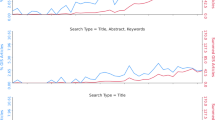Abstract
This chapter questions the adequateness of GIS (Geographic Information Systems) professional ethics by analyzing the URISA’s (“The Urban and Regional Information Systems Association”: the broadest association for GIS Professionals) Code of Ethics. It starts by a preliminary mapping of ethical issues raised by GIS. Its intent is to go beyond the traditional PAPA issues (Privacy, Accuracy, Property, Access) by taking into account issues such as space as a construed object, individual identity and the issues of scope and scale. After exploring various perspectives on professional codes of ethics, it considers how the field of GIS professional ethics have dealt with these issues and suggests a dichotomy between academic and professional ethics. It finally suggests to rethink the expert-lay people interplay when discussing GIS ethical issues.
Access this chapter
Tax calculation will be finalised at checkout
Purchases are for personal use only
Similar content being viewed by others
Notes
- 1.
This weaving loom is a mechanical loom, invented by Joseph Marie Jacquard in 1801, that simplifies the process of manufacturing textiles with complex patterns. The loom is controlled by punched cards with punched holes and is therefore considered an important step in the history of computing hardware, but led to major social protests (“révolte des Canuts” in Lyon, France) and Jacquard himself regretted his whole life the social consequences of his invention.
- 2.
Cf. for instance the German philosopher Friedrich Rapp.
References
Airaksinen, Timo. 1994. Service and science in professional life. In Ethics and the professions, ed. Ruth Chadwick, 1–13. Aldershot: Avebury.
Barndt, Michael. 2002. A model for evaluating public participation GIS. In Community participation and geographic information systems, ed. William J. Craig, Trevor M. Harris, and Daniel Weiner, 346–356. London: Taylor & Francis.
Böhm, Gisela, and Hans-Rüdiger Pfister. 2000. Action tendencies and characteristics of environmental risks. Acta Psychologica 104: 317–337.
Brown, Rosemary. 1965. Professional codes of ethics: A study of the judicial viability of the codes of ethics of medicine, social work and librarianship. School of Social Work: University of British Columbia.
Chadwick, Ruth. 1998. Professional ethics. In Routledge encyclopedia of philosophy, ed. Edward Craig. London: Routledge. http://www.rep.routledge.com/article/L077. Accessed 14 Feb 2011.
Chrisman, Nicholas. 2006. Full circle: More than just social implications of GIS. Cartographica 40: 23–35.
Craig, William J. 2004. GIS ethics: Understanding implications of action. GIS Development. http://www.gisdevelopment.net/magazine/years/2004/July/14.asp. Accessed 11 Feb 2011.
Crampton, Jeremy. 1995. The ethics of GIS. Cartography and Geographic Information Systems 22: 84–89.
Curry, Michael R. 1995. Geographic information systems and the inevitability of ethical inconsistency. In Ground truth: The social implication of geographic information systems, ed. John Pickles, 68–87. New York: Guilford.
Davis, M. 2014. What to consider when preparing a model core curriculum for GIS ethics: Objectives, methods, and a sketch of content. Journal of Geography in Higher Education 38(4): 471–480. doi:10.1080/03098265.2014.956298.
Esnard, Ann-Margaret. 1998. Cities, GIS and ethics. Journal of Urban Technology 5: 33–45.
Frankel, M. 1989. Professional codes: Why, how, and with what impact? Journal of Business Ethics 8: 109–115.
Galbraith, John Kenneth. 1967 (2007). The new industrial state. Princeton: Princeton University Press.
Gaumnitz, B., and J. Lere. 2002. Contents of codes of ethics of professional business organizations in the United States. Journal of Business Ethics 35(1): 35–49. doi:10.1023/A:1012718103007.
Gewin, Virginia. 2004. Mapping opportunities. Nature 427: 376–377.
Gorman, Sean. 2011. The issues of scope and scale that face GIS. GeoIG. http://blog.geoiq.com/2011/06/07/the-challenges-of-scope-and-scale-that-face-gis. Accessed 11 June 2011.
Haque, Akhlaque. 2003. Information technology, GIS and democratic values: Ethical implications for IT professionals in public service. Ethics and Information Technology 5: 39–48.
Harvey, F. 2014. Values, choices, responsibilities: Thinking beyond the scholarly place of ethics for the GIScience and technology profession and GIScience. Journal of Geography in Higher Education 38(4): 500–510. doi:10.1080/03098265.2014.956299.
Higgs-Kleyn, N., and D. Kapelianis. 1999. The role of professional codes in regarding ethical conduct. Journal of Business Ethics 19(4): 363–374. doi:10.1023/A:1005899517191.
Holm, Søren. 2016. The modification of the human body: Controversies. In Technoscience and citizenship: Ethics and governance in the digital society, ed. Ana Delgado. Cham: Springer.
Huff, C. 2014. From meaning well to doing well: Ethical expertise in the GIS domain. Journal of Geography in Higher Education 38(4): 455–470. doi:10.1080/03098265.2014.936314.
Illich, Ivan. 1973. Tools for conviviality. New York: Harper & Rows.
Jepsen, Sune, Delgado A. Kim, and M. Bertilsson. (forthcoming). Sparkling publics into being: Reflections on public engagement with technology in contemporary democracies.
Longhorn, Roger A. 2004. Identifying ethical and unethical activities in GIS. GIS Development. http://www.gisdevelopment.net/magazine/years/2004/July/18.asp. Accessed 11 Feb 2011.
Mason, Richard O. 1986. Four ethical issues of the information age. MIS Quarterly 10: 5–12.
O’Looney, John A. 1997. Beyond maps: GIS and decision making in local government. Washington, DC: ICMA.
Proctor, James D. 1998. Ethics in geography, giving moral form to the geographic imagination. Area 30: 8–18.
Russell, Bertrand. 1954 (2010). Human society in ethics and politics. London: Routledge Classics.
Sheppard, Stephen R.J., and Petr Cizek. 2009. The ethics of Google Earth: Crossing thresholds from spatial data to landscape visualization. Journal of Environmental Management 90: 2102–2117.
Turner, A. 2006. Introduction to neogeography. Sebastopol: O’Reilly Media.
Winner, Langdon. 1977. Autonomous technology: Technics-out-of-control as a theme in political thought. Cambridge: MIT Press.
Winner, Landgdon. 1986. The whale and the reactor: A search for limits in an age of high technology. Chicago: University of Chicago Press.
Author information
Authors and Affiliations
Corresponding author
Editor information
Editors and Affiliations
Rights and permissions
Copyright information
© 2016 Springer International Publishing Switzerland
About this chapter
Cite this chapter
Verrax, F. (2016). Beyond Professional Ethics: GIS, Codes of Ethics, and Emerging Challenges. In: Delgado, A. (eds) Technoscience and Citizenship: Ethics and Governance in the Digital Society. The International Library of Ethics, Law and Technology, vol 17. Springer, Cham. https://doi.org/10.1007/978-3-319-32414-2_10
Download citation
DOI: https://doi.org/10.1007/978-3-319-32414-2_10
Published:
Publisher Name: Springer, Cham
Print ISBN: 978-3-319-32412-8
Online ISBN: 978-3-319-32414-2
eBook Packages: Religion and PhilosophyPhilosophy and Religion (R0)




